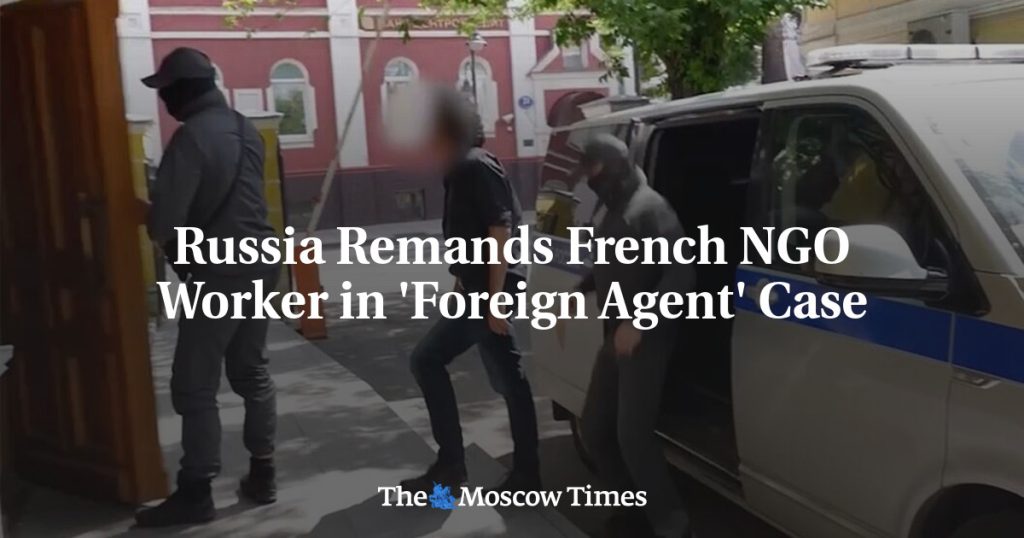A French citizen, Laurent Vinatier, who works for a Swiss conflict mediation NGO, has been detained in Russia and charged with breaching the country’s “foreign agents” law. The charges carry a penalty of up to five years in jail, and Vinatier accepted the accusations against him during a court hearing. He is accused of gathering military information that could be used against Russia by foreign states. The Center for Humanitarian Dialogue, the organization Vinatier works for, focuses on preventing and resolving armed conflicts worldwide through mediation and discreet diplomacy.
Vinatier’s arrest has drawn condemnation from French President Emmanuel Macron, who demanded his immediate release, stating that the accusations against Vinatier do not match reality. The Swiss foreign ministry clarified that the Center for Humanitarian Dialogue is funded by several states, but not by Switzerland in connection with Russia. Vinatier’s lawyers argued for him to be placed under house arrest, but ultimately, the judge ordered him to be held in pre-trial detention until at least August 5. This move has raised concerns about the use of the “foreign agent” law in Russia to target not only Russian citizens but also foreign nationals working for NGOs in the country.
Vinatier, speaking in court in both Russian and French, stated that the allegations against him were not directed at him personally, but rather against the organization as a whole. While he faces a potential five-year prison term if convicted, Russia has a history of using such charges as a pretext to arrest individuals before leveling more serious accusations. The Russian law on foreign agents has primarily targeted domestic critics of the Kremlin, including activists, campaigners, and independent journalists, rather than foreign citizens. The detention of Western citizens in Russia has sparked international outcry, with accusations that Moscow is using them to facilitate prisoner exchanges for Russians jailed abroad.
Among the Western citizens detained in Russia in recent years are U.S. journalist Evan Gershkovich, former U.S. marine Paul Whelan, and U.S. basketball player Brittney Griner. The arrests of these individuals have led to allegations of espionage and spying, although they deny the charges and have been designated as “wrongfully detained” by the White House. Vinatier’s arrest occurred shortly after France detained a Russian-Ukrainian man suspected of planning a violent act after injuring himself in an explosion. The situation has highlighted the ongoing tensions between Russia and Western countries over the detention of their citizens, sparking concerns about the treatment of foreigners in Russian custody.
In Russia, suspects can spend an extended period in pre-trial detention, with their time in jail regularly extended through court hearings. The case of Laurent Vinatier has brought attention to the challenges faced by foreign nationals working for NGOs in Russia, as they navigate the legal complexities and potential risks associated with their work. The international community has called for transparency and fair treatment for individuals detained in Russia, emphasizing the importance of upholding human rights and the rule of law in such cases. The detention of Vinatier underscores the broader issues surrounding the use of laws targeting “foreign agents” and the implications for foreign nationals working in Russia’s complex political environment.


